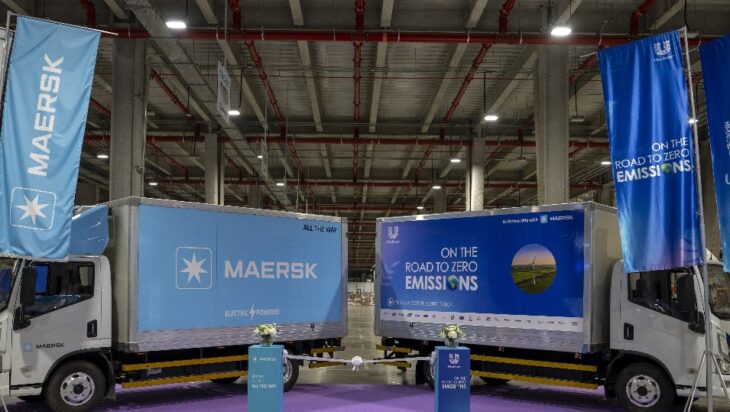
The van will operate from Maersk’s Logistics Park in Jeddah, where Unilever earlier consolidated six warehouses into a single fulfilment centre. That consolidation delivered a 5 per cent cut in emissions and enabled the centre to be powered by around 70 per cent renewable electricity. Maersk emphasises that the electric van deployment is the first in its Saudi fleet and forms part of a broader agenda that includes solar-powered warehouses and intermodal transport solutions. According to Ahmed Kadous, Unilever’s Head of Customer Operations for the Middle East, Turkey, Pakistan and Bangladesh, “This is the first van deployment in our Saudi fleet, and it represents our commitment to reducing logistics-related emissions wherever feasible.” Maersk Saudi Arabia’s Managing Director Ahmed El Esseily added: “As electric vehicle technology advances and charging infrastructure expands across Saudi Arabia, we’re seeing more opportunities to deploy emission-free trucks in place of diesel units.”
While the electric van launch is a relatively modest step in fleet terms, industry analysts note that it carries outsized symbolic value in a region long dominated by diesel transport in logistics operations. The broader logistics park infrastructure already supports innovation: the Jeddah facility spans 225,000 m² and draws up to 70 per cent of its electricity from rooftop solar panels, according to Maersk’s disclosures. That suggests the van rollout fits within a scalable decarbonisation framework rather than being a standalone pilot. The partnership between Maersk and Unilever is longstanding, spanning global freight operations since 2022, and the new electric van effort builds on that strategic link.
Saudi Arabia’s logistics sector is undergoing rapid transformation with government emphasis on closing supply-chain loops, reducing reliance on fossil-fuel vehicles and integrating digital and green infrastructure. The electric van initiative aligns with that trend and also provides Unilever and Maersk with a live testbed for deployment challenges such as local charging infrastructure, vehicle range in hot climate conditions and operational cost comparisons with diesel. However, questions remain about scalability: electric heavy-duty trucks and long-haul freight remain largely unproven in the Gulf region, and local charging networks are still in nascent stages. While the van will operate a 50-kilometre radius, scaling to national networks, including desert and remote areas, will require significant investment in grid upgrades, battery technology and supporting services.
Topics
Live News
